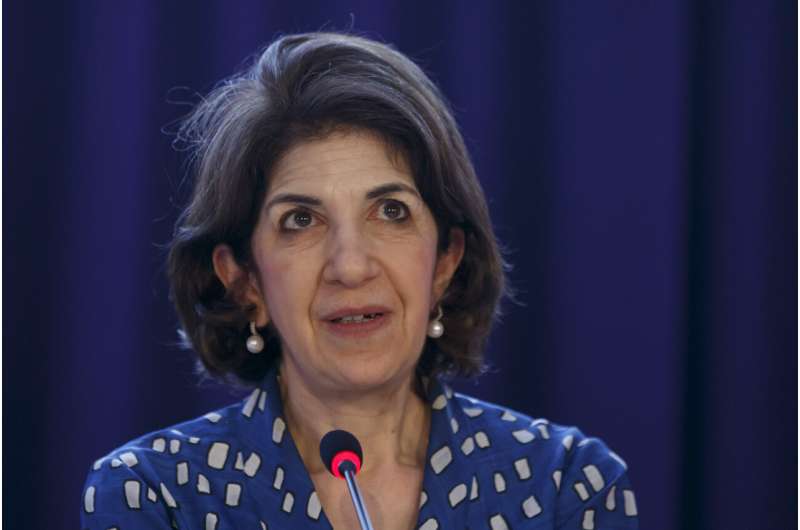CERN appoints Gianotti, first female chief, to second term

The European research center that runs the world's largest atom smasher says it has reappointed Italian physicist Fabiola Gianotti, its first female director, for a second five-year term.
CERN, the European Organization for Nuclear Research, says Gianotti's appointment marks the first time its director-general has been named for a second full term. It will begin on Jan. 1, 2021.
Gianotti, 59, headed a key CERN experiment between 2009 and 2013, when the center's 27-kilometer (17-mile) circumference Large Hadron Collider helped confirm the subatomic Higgs boson seven years ago.
CERN has some big long-term projects like a high-luminosity LHC that will vastly increase the potential for scientific discoveries starting in 2026, and a multibillion-euro project to build a 100-kilometer (60-mile) circumference "Future Circular Collider" that could start operating in 2040.
© 2019 The Associated Press. All rights reserved.




















